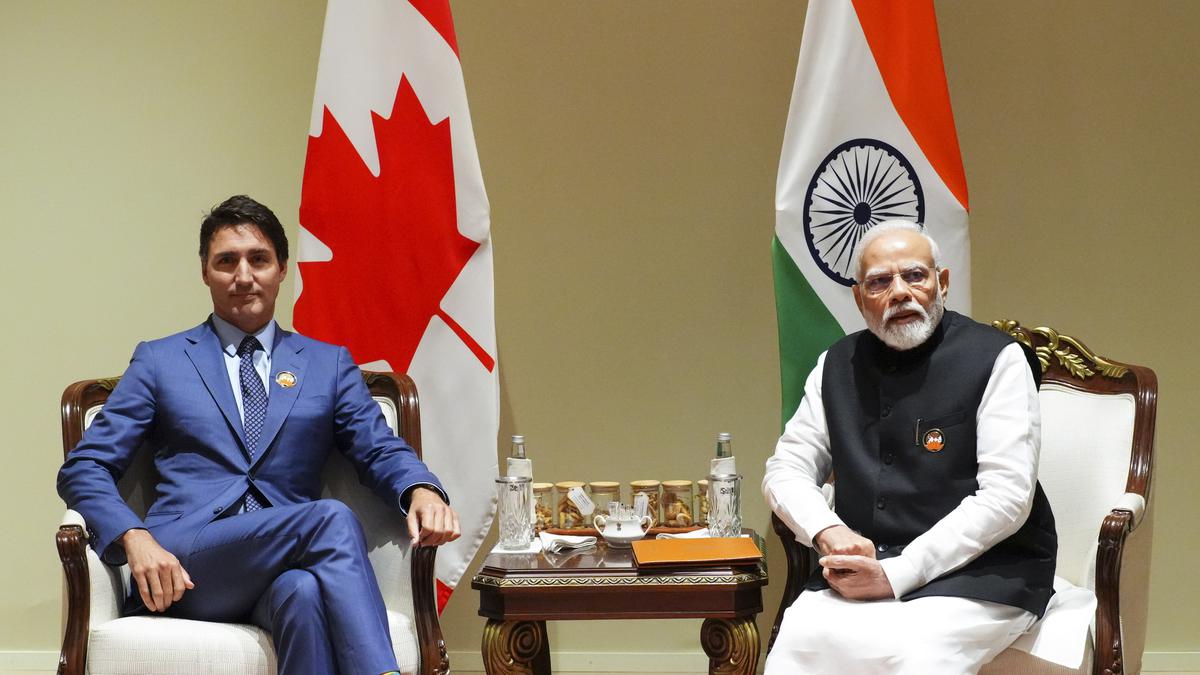
After U.S., U.K., Australia, Five eyes member New Zealand too criticises India on order expelling Canadian diplomats
The Hindu
New Zealand joins other "five eyes" nations in expressing "concern" over India's demand for 41 Canadian diplomats to leave or face revocation of diplomatic immunity. NZ expects all states to uphold Vienna Convention on Diplomatic Relations, which India denies violating.
Close on the heels of U.S., U.K., and Australia, New Zealand on October 26 criticised India’s demand for 41 Canadian diplomats to leave or face a revocation of diplomatic immunity. New Zealand, the last of the “five eyes” intelligence network to speak on the issue, also referred to the Vienna Convention on diplomatic ties, which has sparked a new row between Delhi and Ottawa over the international convention, adding to growing tensions over Canada’s claims against Indian officials in the killing of Hardeep Singh Nijjar.
“Now seems the time for more diplomacy, not less,” said a statement issued by the New Zealand Ministry of Foreign Affairs that expressed “concern” over the departure of the diplomats last week. “We expect all states to uphold their obligations under the 1961 Vienna Convention on Diplomatic Relations, including in relation to the privileges and immunities of accredited staff,” it added, in a statement similar to those issued in Washington, London and Canberra over last weekend.
The Canadian diplomats and their families had flown out of India on October 19, after the MEA demanded that the Canadian High Commission pare down its mission by two-thirds, handing over a list of the diplomatic officials it would accept, and saying it would revoke all immunity and privileges that protected the remaining diplomats if they didn’t leave India by October 20.
India has denied its move was a violation of the international convention as it held that the diplomats were far in excess of the Indian mission strength in Canada. In a statement defending the move last week, the Ministry of External Affairs cited the Vienna Convention’s Article 11.1, which says that in the absence of any specific bilateral agreement, the Receiving (host) state “may require that the size of a mission be kept within limits considered by it to be reasonable and normal, having regard to circumstances and conditions in the receiving State and to the needs of the particular mission”. The MEA said it rejected Canada’s attempt to portray the ”implementation of parity” as a violation of international norms.
However, Canada has been backed by its partners in the “five eyes” intelligence alliance on the issue of parity and the Vienna Convention. In a sharp statement last week, Canadian PM Justin Trudeau had accused India of “choosing to contravene a very fundamental principle of international law and diplomacy.” Mr. Trudeau was referring to Article 9 of the Vienna Convention that says the Receiving (host) State has to first declare a diplomat “Persona Non Grata”, and can only revoke immunity or “refuse to recognise” a diplomat if the Sending (guest) state refuses to recall that diplomat “within a reasonable period”, indicating bilateral negotiations must precede the expulsion.
“Diplomatic immunities should be respected and cannot be unilaterally revoked by a host country,” said Canadian Foreign Minister Melanie Joly, adding that if that norm was broken “no diplomat anywhere would be safe.”
Hitting out at the Canadian statements this Sunday, External Affairs Minister S. Jaishankar had said that it is Canada that violated the “most fundamental aspect” of the Vienna Convention by failing to provide security to Indian diplomats in Canada, who have been under threat from separatist Khalistani groups. In addition, Mr. Jaishankar accused the expelled Canadian diplomats of “continuous interference” adding that “more stuff” would appear substantiating India’s concerns. Amidst the punches and counter-punches, experts say all eyes are on the Canadian government’s next move and whether it will publicly furnish evidence of its allegations against India in the Nijjar case.

Vaishnaw credits Make-in-India push for Bengaluru plant after Rahul Gandhi touts Karnataka ecosystem
Vaishnaw credits Make-in-India for Bengaluru's success, acknowledging Rahul Gandhi's praise of Karnataka's thriving business ecosystem.












